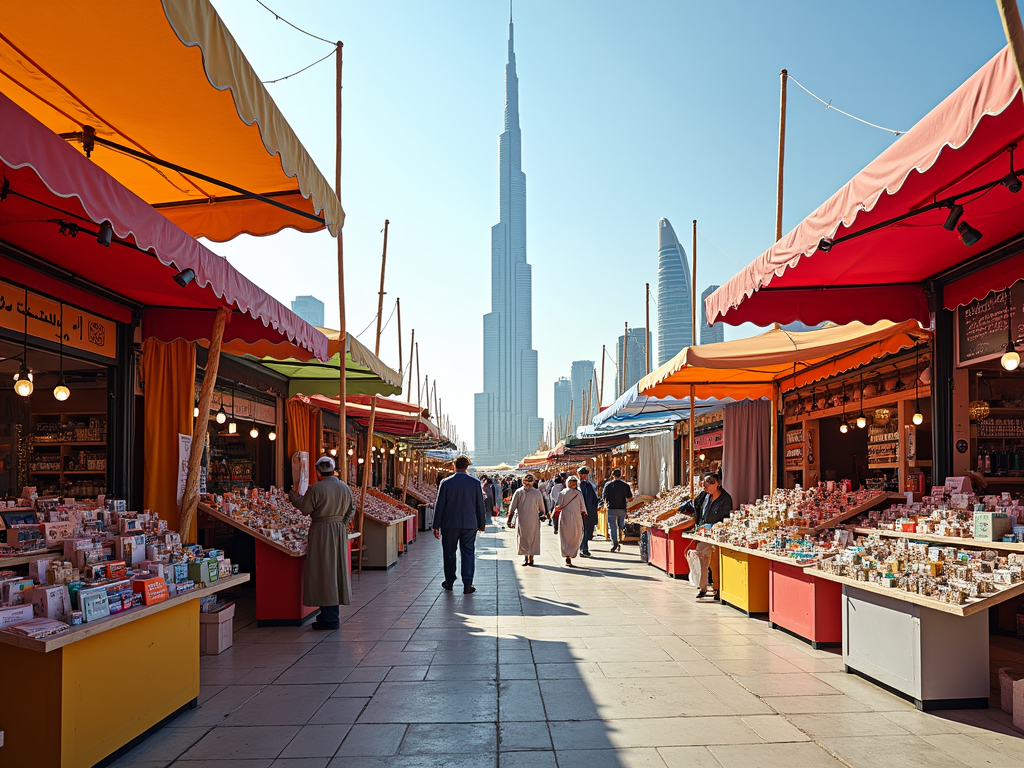In recent years, Dubai has emerged as a prominent global hub for e commerce Dubai, thanks to its strategic location, robust infrastructure, favorable regulatory framework, and a burgeoning digital economy. The city’s efforts to diversify its economy away from oil dependency have paved the way for innovative enterprises to thrive. With the rise of technology, an influx of investments, and a youthful populace driving demand, Dubai has positioned itself as a beacon for e-commerce ventures from around the world.
The Strategic Location of Dubai

One of the key factors that have propelled Dubai to the forefront of global e-commerce is its strategic geographical location. Situated between Europe, Asia, and Africa, Dubai serves as a major logistical hub for businesses seeking to access markets across these continents. This advantage is amplified by its state-of-the-art transportation infrastructure, including:
- Dubai International Airport, one of the busiest airports globally, handling millions of passengers and cargo annually.
- The Jebel Ali Port, which is one of the largest and most advanced ports in the region, facilitating easy access for shipping goods.
- A well-developed road and rail network that enhances connectivity throughout the UAE.
These logistical benefits attract e-commerce businesses, enabling them to efficiently reach customers and suppliers, significantly reducing time and costs associated with distribution.
Investment in Digital Infrastructure

Dubai’s investments in digital infrastructure have been pivotal in fostering a robust e-commerce ecosystem. Over the past decade, the city has prioritized the development of high-speed internet connectivity, cloud computing services, and advanced cybersecurity measures. This infrastructure has created an environment conducive to online business operations. Additionally, the rise of innovative payment solutions such as mobile wallets and contactless payment systems has made transactions seamless and secure. Major technology companies are also setting up data centers in Dubai, further enhancing the region’s digital landscape. Moreover, the UAE’s commitment to adopting cutting-edge technologies, including AI and blockchain, continues to fuel e-commerce growth, making Dubai an attractive destination for tech-savvy entrepreneurs.
The role of the government in shaping Dubai as an e-commerce powerhouse cannot be overstated. Various initiatives have been launched to support this growth, including:
- The Dubai Multi Commodities Centre (DMCC) Free Zone, which offers incentives like tax exemptions and full ownership rights.
- The launch of the Dubai eCommerce Strategy, aiming to make Dubai a top e-commerce hub globally by 2021.
- Streamlined regulations that simplify the process of starting and operating an online business.
Such proactive measures ensure that local and international businesses can navigate the regulatory landscape with ease, fostering an environment rich with opportunities. Furthermore, the UAE’s strategic partnerships with major international players have bolstered its standing, attracting worldwide talent and capital to the region.
The Growing Consumer Landscape
Dubai’s diverse population and high disposable income levels contribute significantly to the e-commerce boom. The city is home to millions of expatriates representing over 200 nationalities, creating a melting pot of consumer preferences and shopping habits. This diversity is coupled with:
- High internet penetration rates, exceeding 99%, facilitating online shopping.
- A young demographic that is increasingly inclined towards digital shopping experiences.
- Strong consumer confidence in online transactions, thanks to growing awareness and improved security measures.
These favorable conditions have stimulated the growth of both local and international e-commerce businesses, as they adapt to meet the expanding demand for a variety of products and services online.
Conclusion
In summary, Dubai’s emergence as a global hub for e-commerce businesses can be attributed to its strategic location, significant investments in digital infrastructure, supportive government initiatives, and a dynamic consumer landscape. These factors collectively create an enabling environment for e-commerce to flourish, attracting investments and talent from around the world. As Dubai continues to innovate and diversify its economy, its status as a leading e-commerce destination appears destined to grow, setting a precedent for other regions to follow.
Frequently Asked Questions
1. What makes Dubai an attractive destination for e-commerce businesses?
Dubai offers a strategic location, advanced digital infrastructure, supportive government policies, and a diverse consumer base, making it an ideal hub for e-commerce businesses.
2. How does the UAE government support e-commerce initiatives?
The UAE government provides incentives such as tax exemptions, simplified regulations, and the establishment of free zones, allowing businesses to thrive with fewer bureaucratic challenges.
3. What are Dubai’s major logistics advantages for e-commerce companies?
Dubai features a major international airport, one of the largest ports, and an efficient transport network, facilitating quick and cost-effective distribution of goods.
4. How has technology influenced e-commerce growth in Dubai?
Investments in high-speed internet, cloud computing, and innovative payment solutions have vastly improved the e-commerce infrastructure in Dubai, driving its growth.
5. What factors contribute to the high consumer demand for e-commerce in Dubai?
High internet penetration, a youthful demographic, high disposable income, and a diverse population create a strong demand for online shopping in Dubai.
